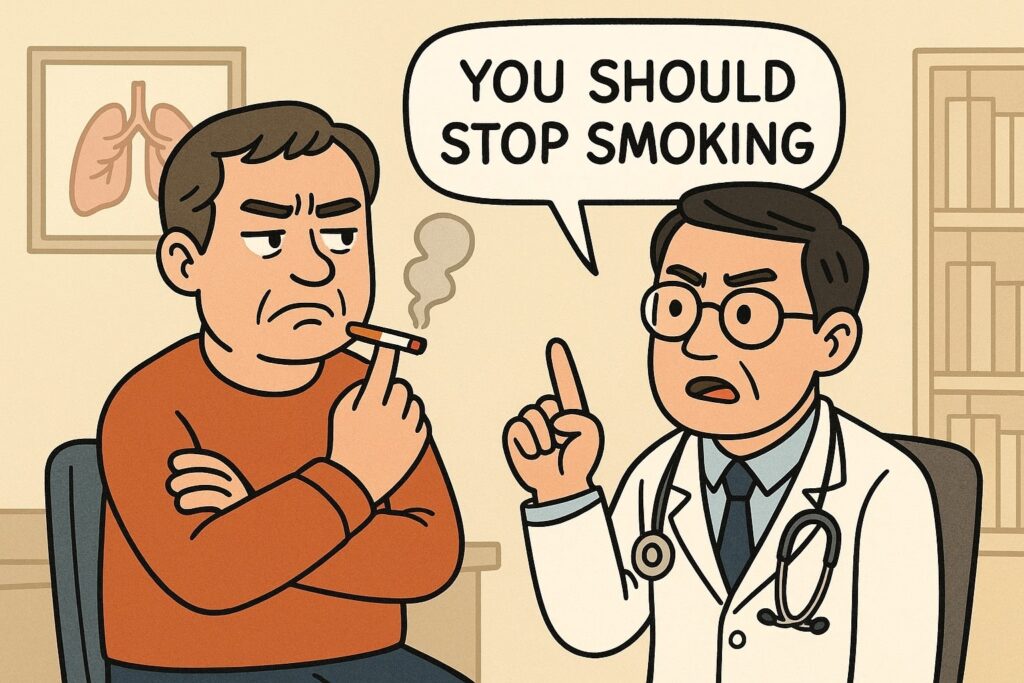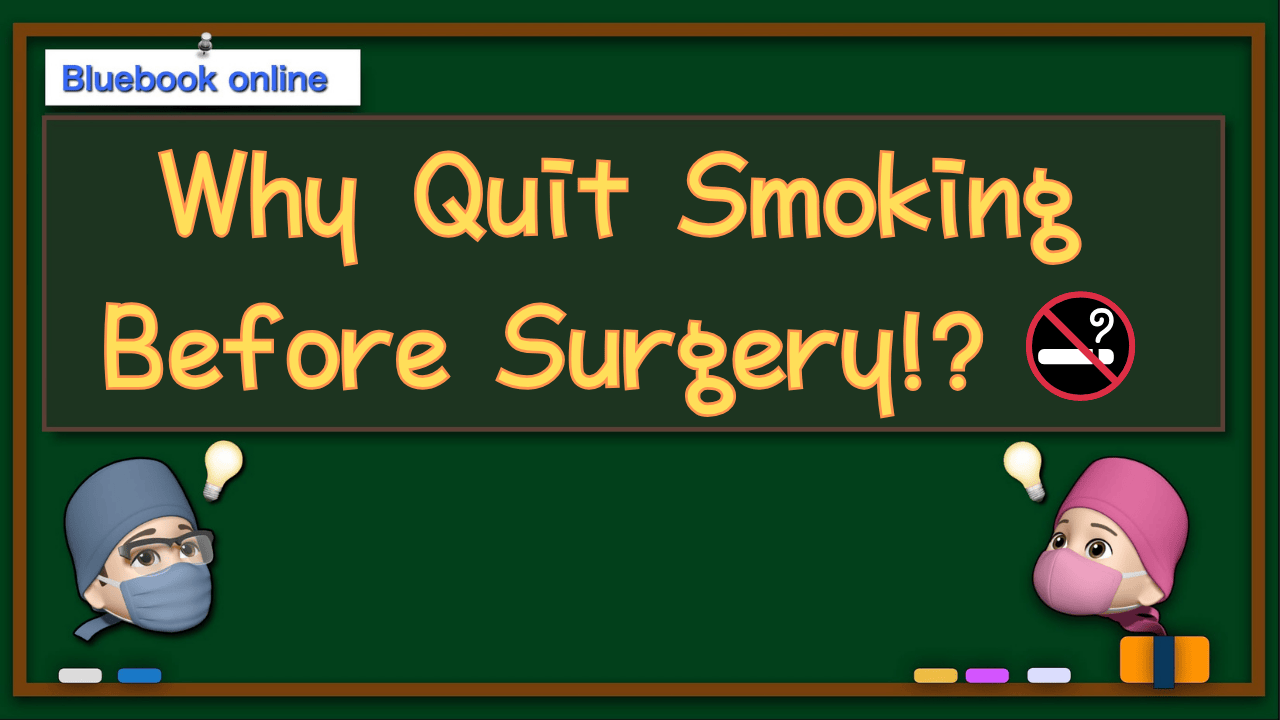👉👉 🇺🇸 All Posts 🇬🇧 / 🇯🇵 記事一覧 🇯🇵 👈👈
♦️ Introduction
Do any of you smoke? 🚬😃 With the rise of anti-smoking sentiment, I imagine smokers often feel squeezed into narrow corners.
When I was a child, “no smoking” meant only in fire-sensitive areas, and people smoked everywhere. Back then, male smoking rates exceeded 90 %—hard to believe now—and there was even a time when smoking was allowed on airplanes.
Even in hospitals, the walls of physicians’ lounges acquired a yellowish tint over time, thanks to “nicotine stains” on what were once white walls 😅.
As for me, I’ve never smoked. I tend to get addicted easily, so once I start something I can’t stop… 😅 That’s why I’ve always avoided it ( 。•̀_•́。)✧.
🔷 Smoking Cessation Is Recommended in the Perioperative Period

Before surgery, your surgeon or anesthesiologist will usually instruct you to quit smoking. Why is that? Is it just because hospitals are no-smoking zones? That’s part of it—but really, the recommendation is for your own benefit.
♦️ What’s So Bad About Smoking? 😤🚬
In short, smoking dramatically increases the likelihood of various complications. And it’s not just limited to lung problems you might expect.
In fact, in patients who have smoked heavily (≥ 10 cigarettes/day) over a long period, the risk of postoperative pulmonary complications is reported to increase 2- to 5-fold compared to non-smokers 😵.
🔷 What are pulmonary complications?
- Increased risk of bronchospasm during surgery
- Higher risk of laryngospasm
- Greater incidence of atelectasis during or after surgery (due to increased sputum or airway secretions)
- In elderly patients, this can even progress to pneumonia
- 👉These issues can be catastrophic especially in patients with chronic obstructive pulmonary disease (COPD).
- 👉Furthermore, smoking also raises the risk of surgical site infection (SSI) and poor wound healing.
🔷 Negative effects even in pediatric surgeries
Maybe one could argue that if an adult smokes, it’s their own risk. But when children are scheduled for surgery, having a smoker in the household becomes a risk factor for respiratory complications in the child.
So if there are kids at home, ideally no one should smoke.👶
♦️ How Long Should You Quit Smoking Before Surgery?
If possible, 6 to 8 weeks of abstinence is ideal. That timeframe is associated with a lower risk of postoperative pulmonary complications.
However, that’s not always realistic. Some people can’t quit, or they say they quit but sneakily smoke when no one is looking … 😡
Don’t despair. Even quitting for hours to days can start bringing beneficial changes — levels of nicotine and carbon monoxide fall, and many physiological parameters begin to improve.
So quit as early as you can, and maintain abstinence as long as possible.
📝 Summary:Take Home Points
Smoking is a major risk factor in the perioperative period for both pulmonary complications and surgical site infections.
Many believe “Quitting right before surgery won’t do anything,” but the evidence suggests that even a short duration of abstinence (hours to days) has benefits.
It’s best to quit as early as possible and for as long as possible.
In a future article I’ll explain smoking cessation aids and alternatives, so if you’re curious, definitely keep an eye out!
- Smoking significantly increases the risk of postoperative pulmonary complications (bronchospasm, atelectasis, pneumonia) and wound healing problems (SSI, dehiscence).
- Heavy long-term smokers may face a 2- to 5-fold higher risk of pulmonary complications.
- Ideally, patients quit smoking 6–8 weeks before surgery.
- Even short cessation (hours to days) can yield physiological improvements (lower carbon monoxide, improved circulation, better immune function).
- If a pediatric patient is scheduled for surgery, smoking by family members in the home is an avoidable respiratory risk factor.
- Support for quitting (behavioral intervention, pharmacotherapy) should be offered even if surgery is near.
📚 References & Further reading
- Smoking increases risk of surgical wound complications: association with surgical site infection, wound disruption, etc. PMC
- Systematic review: “The effects of preoperative smoking cessation on the incidence and risk of intraoperative and postoperative complications” PMC
- Optimal period of smoking cessation to reduce incidence of postoperative pulmonary complications. PMC
- Perioperative tobacco cessation interventions: systematic review.
- Royal College of Anaesthetists’ guidance: people who smoke should quit several weeks before surgery. PMC
- Barriers & facilitators to perioperative smoking cessation: evidence even cessation days prior is beneficial. PLOS
- Smoking Cessation reduces postoperative complications: meta-analysis and observational studies. American Journal of Medicine+2American Journal of Medicine+2

コメントを投稿するにはログインしてください。